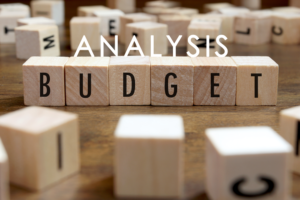Budget 2022 was delivered by Minister for Finance, Paschal Donohoe and Minister for Public Expenditure, Michael McGrath today. Below we highlight the main changes that could affect you.
COVID-19 Support Measures
- The EWSS will remain in place until 30th April 2022 in a graduated form. The scheme will close to new entrants on the 31st December 2021. Those in the scheme at the end of December may continue to avail of the supports until the end of April. A two-rate structure of €151.50 and €203 per week will apply for the months December, January and February. For the final two months of the scheme a flat rate of €100 will apply however the reduced Employer’s PRSI rate will not apply in these two months.
- The 9% VAT rate for the hospitality and tourism sector will remain in place to the end of August 2022.
- The waiver from Commercial Rates for those in the Arts, Hospitality and Tourism sectors will apply for Q4 2021.
- The tax debt warehousing scheme will be expanded to allow self-assessed income taxpayers with employment income who have a material interest in their employer company to warehouse income tax liabilities relating to their Schedule E income from that employer company.
Climate and Environmental Measures
- A Carbon tax yearly increase of €7.50 until 2030, equivalent to about 2c per litre for Petrol and 2.5c per litre for Diesel.
- From the 1st January 2022 a revised 20 band VRT table will come into effect. 1% increase for vehicles between bands 9-12, 2% increase for bands 13-15 and 4% increase for bands 16-20.
- The €5,000 VRT relief for battery electric vehicles to continue until the end of 2023.
- Accelerated Capital Allowances scheme for Energy Efficient Equipment extended for gas vehicles and refuelling equipment for 3 years.
- Accelerated Capital Allowances scheme for Energy Efficient Equipment will not be available where the equipment is directly operated by fossil fuels.
- An exemption from Tax on the sale of surplus electricity to the National Grid, limit of €200, by households.
- Commencing in 2023 the BIK exemption for batter electric vehicles will be extended out to 2025 with a tapering effect on the vehicle value. The original market value of the vehicle will be reduced by €35,000 for 2023; €20,000 for 2024; and €10,000 for 2025.
Housing Measures
- Introduction of a new Zoned Land Tax based on the market value of the land and outset rate of 3% to encourage house building. However, there is a two-year lead-in time for land zoned before January 2022 and a three-year lead-in time for land zoned after January 2022. It will replace the current 7% vacant site levy but unlike the levy there will be no minimum site size.
- The relief for landlords for pre-letting expenditure will continue for a further 3 years.
- Help to Buy Scheme will be continued in 2022 in its current form.
Business Measures
- For the vast majority of companies, the 12.5% trading rate will remain. The increased 15% will apply only to those large multinational companies with turnover greater than €750m.
- A refundable Digital Gaming Tax Credit for expenditure incurred on the design, production and testing of a game. The relief will be available at a rate of 32% on eligible expenditure of up to a maximum limit of €25m per project.
- Extension of 3 years to the Employment Investment Incentive Scheme (EIIS) – wider range of investment funds and the 30% expenditure rule will be removed, to make it more attractive and accessible for investors and start-up businesses.
- The relief from Corporation Tax for start-up companies will be amended such that the relief will be available for up to five years rather than three.
- Threshold for the higher rate of Employers’ PRSI will increase from €398 to €410.
Personal Tax
- Income tax standard band increase by €1,500 to €36,800 (single) and €73,600 (married).
- Increase Personal, Employee and Earned Income Tax Credit by €50 to €1,700.
- The Dependent Relative Credit will increase from €70 to €245.
- Tax relief for remote working from home of 30% of vouched expenses for heat, electricity and broadband.
- Small change to the second rate-band of Universal Social Charge which will increase from €20,687 to €21,295.
- Amendments are proposed to be announced in the Finance Bill to s.127B TCA’97 which covers the taxation of international air crews to exclude non-resident air crew.
Anti-Avoidance
- Introduction of new Interest Limitation Rule will see a limit on deductible interest expenses of 30% of EBITDA for companies within scope of the Anti-Tax Avoidance measures. Disallowed interest may be carried forward and may be deducted in future years if the company has sufficient interest capacity.
- Finance Bill 2021 will introduce a new anti-reverse-hybrid rules which will bring certain tax transparent entities within scope of Irish tax where the entity is 50% or more owned/controlled by entities resident in a jurisdiction that regard it as tax opaque and, as a result of this hybridity, double non-taxation occurs.
VAT
- 9% rate to cease at the end of August 2022.
- Farmers’ Flat Rate Addition is reduced from 5.6% to 5.5%.
Agri Measures
- Stock relief to end of 2024.
- Young Trained Farmer Stamp Duty relief continue to end of 2022 at 1%.
Other Matters
- No changes to Capital Gains Tax or Capital Acquisitions Tax.
- The State Pension (Contributory) will increase from €248.30 to €253.30 per week from 2022.
- Public Consultation to be launched in coming weeks to inform Commission on Taxation and Welfare.
- The Finance Bill is due to be published on the 21st October.
For more information, please contact Eddie Murphy, Partner & Head of Tax Services.



 Budget 2019 was delivered by Minister Donohoe, the country’s first balanced Budget in over 10 years. With the Irish economy and the national tax-take set to continue to grow impressively, and with a general election expected in the near-term, it was left to prudence and Brexit to influence the Minister’s Budget restraining measures. With Budget surpluses expected for the next few years, it was confirmed that these would be used to pay down that eye-watering national debt that we don’t really like to talk about.
Budget 2019 was delivered by Minister Donohoe, the country’s first balanced Budget in over 10 years. With the Irish economy and the national tax-take set to continue to grow impressively, and with a general election expected in the near-term, it was left to prudence and Brexit to influence the Minister’s Budget restraining measures. With Budget surpluses expected for the next few years, it was confirmed that these would be used to pay down that eye-watering national debt that we don’t really like to talk about.
